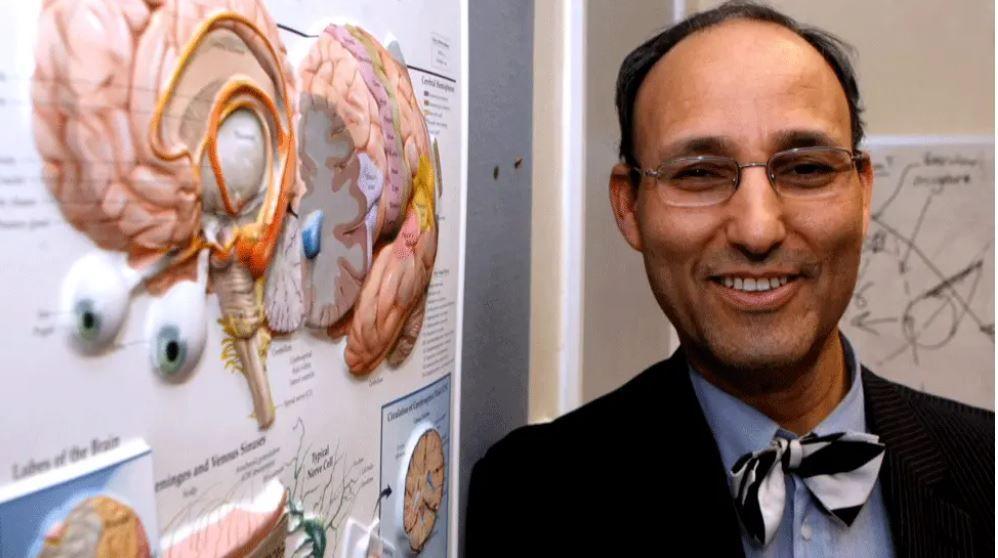Inquiry into disgraced brain surgeon to hear opening statements

Sam Eljamel was the head of the neurosurgery department at Ninewells Hospital in Dundee
- Published
A public inquiry into disgraced Tayside brain surgeon Sam Eljamel will hear opening statements from its core participants later.
Eljamel, who was head of neurosurgery at Dundee's Ninewells Hospital until his suspension in December 2013, harmed dozens of patients and left some with life-changing injuries.
The Eljamel Inquiry, external will hear statements from the inquiry's senior counsel Jamie Dawson KC and Joanna Cherry KC for the patients' group in the morning session.
The afternoon session will hear from Una Doherty KC for NHS Tayside and Laura Thomson KC for Scottish ministers.
Following his suspension, Eljamel resigned in 2014 and is now believed to be operating in Libya.
The inquiry said previously that various efforts to contact him had been unsuccessful.
These included letters, emails and phone calls to hospitals where he is understood have been working, and contact with professional bodies who represented him in the past.
However, Eljamel cannot be compelled to give evidence if he is not living in the UK.
The hearing, which is taking place in Edinburgh, will hear the views of core participants on "matters addressed by the inquiry and the way it will go about its work".
Further contributions on behalf of Healthcare Improvement Scotland, NHS Education for Scotland, and the Royal College of Surgeons (Edinburgh) will be heard on Thursday.
The inquiry, which is headed by Lord Weir, is expected to begin hearing evidence early next year.
NHS Tayside sorry for 'adding to Eljamel trauma'
- Published10 September
Surgeon inquiry spends £1m before hearing evidence
- Published16 May
Top surgeon harmed patients for years
- Published3 September 2018
The first block of hearings will include the roles of key bodies, individuals, policies and practices relevant to the inquiry.
It will look at the broad trajectory of Eljamel's career in Scotland, the types of work he undertook and the systems surrounding his NHS practice.
The hearings will examine the circumstances surrounding his appointment to the role of consultant neurosurgeon at Ninewells Hospital in Dundee in 1995 and other key teaching and research roles.
They will also look at NHS Tayside's complaints system, including statistical evidence relating to the nature and timing of formal complaints about Eljamel.
It will also examine the reasons for Eljamel's suspension, the findings of previous investigations into the surgeon, and document management and retention systems in place at NHS Tayside during the course of Eljamel's employment.
The role of organisations which did, or could have, played a part in overseeing the work of Eljamel and his team will also be examined.
Priority case reviews
Meanwhile, the inquiry's list of issues, a more detailed outline of the matters to be investigated under its terms of reference, have been expanded following engagement with the core participants.
These include a more detailed examination of the accuracy and comprehensiveness of patients' medical records, including whether they were falsified or altered retrospectively.
It will also consider whether Eljamel was using unlicensed or experimental products in surgery.
The hearing will also provide an update on the separate Independent Clinical Review (ICR), external, which is being led by Prof Stephen Wigmore.
Former patients of Eljamel can register to have their cases evaluated by the ICR's independent expert neurosurgeons.
The reports compiled by the ICR will be fed back to the inquiry to assist it in its own investigations into what happened to patients, and whether the systems supposed to protect them failed.
The inquiry has requested that the ICR provide it with an initial 50 priority case reviews, which cover "a broad spectrum of patient experiences", in time for the second section of the inquiry's hearings.